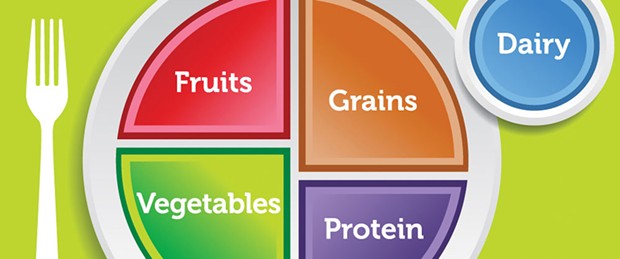[
{
"name": "Top Stories Video Pair",
"insertPoint": "7",
"component": "17087298",
"parentWrapperClass": "fdn-ads-inline-content-block",
"requiredCountToDisplay": "1"
}
]
Not getting enough advice about how to eat healthily? Got a weight problem and can't find any books to tell you how to fix it? Nothing online about diets?
I jest. The problem isn't too little but too much information. Fad diets (what other types are there?) come and go. Some stick around longer than others; Oprah swears by one, your sister another. Low-fat, low-carb, paleo, vegan, Mediterranean, macrobiotic — if just one actually worked, we wouldn't have what's now a global obesity epidemic. I wrote about diets here a few years ago ("Diets for Losers," July 19, 2012 and July 26, 2012). Here's an update:
You can't run the pounds off. Or walk or jazzercise them away. Exercise is wonderful — I swear by getting in 10,000 steps daily, measured on my $14 pedometer. It's great for both physical and psychological health. Weight loss? Not so much. (My regimen — 5½ miles brisk walking — only burns a 300-calorie chocolate-chip cookie's worth.)
The only real test of a diet or weight-loss program is does it work long term? Every January, U.S. News and World Report publishes a review of which regimens work, which don't. Not encouraging. Even its top-place weight-loss program, Weight Watchers, is only "moderately effective" in the long term. And ratings don't track the drop-outs (which is most dieters).
Diets are basically tricks to help us reduce calorie intake. Since eating is one of the crowning pleasures of life, it follows that the more restrictive it is, the less likely it'll work in the long run.
We're opportunistic omnivores, and our bodies naturally gravitate to sugars for energy and fats for energy, maintenance and growth. And the more the better: Body fat helped our ancestors through famines and droughts (more people died from starvation than perished in all the wars, natural disasters and plagues combined). At the first sign of deprivation, those "eat-more" hormones will click in and it's willpower out the window.
And anyway, willpower isn't the issue. You're not a weak, bad person if you go off the diet wagon. You're a normal person with normal genes and a body that outsmarts your brain. Better off changing your environment (keep high-calorie/high-sugar-content food out of the house, only shop when you're satiated, buy flavored water instead of soda and fruit juice — you know the drill), than your behavior.
Meat isn't essential to nutrition, and environmentally it sucks (eating a pound of beef is equivalent to driving 45 miles, as opposed to one mile for a pound of wheat), quite apart from the awful business of factory farming.
The 20 percent of National Weight Control Registry members who have kept their weight off long-term report following low-calorie and low-fat diets, eating breakfast, weighing regularly and getting lots of physical activity.
Bodies are complex! Diets are complex! You can know everything there is to know about nutrition and still be fat and unhealthy! If all else fails, Michael Pollan's seven-word mantra will go a long way to health: Eat food (he means real, not processed, food). Not too much. Mostly plants. To which I'd add, Get plenty of sleep.
Comments (7)
Showing 1-7 of 7
more from the author
-
Doubting Shakespeare, Part 2: Problems
- May 2, 2024
-
Doubting Shakespeare, Part 1: Stratfordians vs. anti-Stratfordians
- Apr 25, 2024
-
A Brief History of Dildos
- Apr 11, 2024
- More »
Latest in Field Notes
Readers also liked…
-
Trouble on the Line: The Reality Part 2
- Nov 3, 2022


































